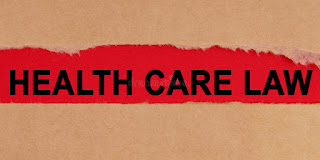The Failing Healthcare System of The Bahamas
Dr. Duane Sands, Chairman of the Free National Movement: "Silencing Truth in Healthcare"
Last week, I was deeply disturbed to learn that Nurse Pearl Williams, a respected healthcare professional with more than four decades of service at Princess Margaret Hospital, was suspended for doing what too many are afraid to do: speak the truth.
After 44 years of caring for Bahamians, Nurse Williams went public with an emotional plea to Prime Minister Philip Davis, describing the dire state of our nation's main public hospital: leaky roofs, rodent infestations, medical supply shortages, and exhausted staff stretched far beyond their limits. Her message was not one of politics but of pain; the pain of seeing the system she has served her entire life collapsing around her.
Rather than confront the truth, the Public Hospitals Authority chose to suspend Nurse Williams.
But the problems Nurse Williams spoke of did not appear overnight. They are the result of years of neglect under this PLP administration, a government that came to office promising to fix healthcare but has failed to deliver.
While facilities across the country crumble, the Davis Administration has chosen to borrow more than $200 million from the Chinese to build a new hospital instead of repairing and upgrading the ones we already have. Theychase ribbon-cuttings and photo opportunities while nurses work double shifts, supplies run short, and patients suffer in silence.
The Free National Movement has repeatedly warned that our healthcare system is decaying from the inside. We have called for, and continue to demand, a comprehensive national audit of all public hospitals, a timeline for critical infrastructure repairs, better pay and training for nurses, and a real plan to upgrade facilities from Grand Bahama to Inagua. These are not partisan demands; they are the bare minimum that a responsible government owes to its people.
The FNM believes that those who care for our citizens deserve respect, not retribution. Nurse Williams spoke not just for herself, but for countless others: nurses, doctors, and hospital staff who are tired of broken promises, unsafe conditions, and a government more interested in managing headlines than solving problems.
We stand firmly with her, and with every Bahamian demanding dignity, accountability, and action in healthcare. The truth is this: our healthcare system is failing, our workers are crying out, and our people deserve better.
It is time to stop punishing those who speak up and start fixing what's broken. The Free National Movement will continue to fight for a healthcare system worthy of the Bahamian people, one that values its Workers, protects its patients, and delivers care with competence and compassion.
FREE NATIONAL MOVEMENT 144 MACKEY STREET, P.O. BOX N-10713 | NASSAU, N.P, THE BAHAMAS
(242) 393-7853
November 9, 2025



